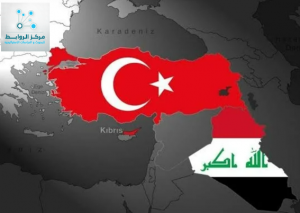By: Shatha Kalel
Iraq’s economic landscape is significantly shaped by its trade relations, with Turkey emerging as a pivotal partner. In the first half of 2024, Iraq became the largest importer of Turkish food products, accounting for 14% of Turkey’s total food exports, valued at $1.6 billion. This relationship, while beneficial in many ways, poses several economic challenges and strategic dilemmas for Iraq. This essay delves into the dynamics of Iraq-Turkey trade relations, the economic implications of Iraq’s heavy reliance on Turkish imports, and the potential impact of recent policy changes.
Key Imports and Economic Implications
In the first half of 2024, Iraq’s imports from Turkey included:
Flour: $238 million
Poultry meat: $185 million
Local biscuits: $143 million
Lentils: $111 million
Pastries: $72 million
Table eggs: $58 million
Various fruits: $58 million
Turkey’s strategic construction of dams has bolstered its agricultural output, allowing it to dominate Iraq’s food import market. This dependence on Turkish agricultural products places Iraq in a vulnerable position, economically and politically. The significant share of Turkish food products in Iraq’s market underscores a critical interdependence: while Turkey benefits from a steady export market, Iraq relies heavily on these imports to meet its food needs.
Water Politics and Agricultural Dependence
A crucial aspect of this relationship is water. Turkey’s control over water resources through its dam projects presents a strategic leverage point. The question arises: how can Iraq negotiate for water release when it is so dependent on Turkish food imports? Turkey could potentially use water as a bargaining chip, exacerbating Iraq’s agricultural and water woes to increase its dependency on Turkish goods. This scenario underscores the need for Iraq to diversify its import sources and bolster local agricultural production.
Customs Tariff and Local Production
In an effort to protect and stimulate local production, the Iraqi government has raised the customs tariff on imported flour, effective from September 1, 2024. This policy, while economically sound, is expected to face significant opposition. Media channels and influencers are likely to criticize the tariff hike, citing its impact on bread prices and the average citizen. The real motive behind this criticism could be to pressure the government into rescinding the tariff, thus maintaining Iraq’s dependency on Turkish imports.
The success of this tariff policy largely depends on its enforcement across all entry points, including the Kurdistan region. Historically, Kurdistan’s ports have been gateways for smuggled goods, posing a significant challenge to policy implementation. If Turkish goods are allowed to enter Iraq under the guise of locally manufactured products in Kurdistan, the tariff’s effectiveness will be severely undermined.
Future Trade Relations
The future of trade relations between Iraq and Turkey hinges on several factors:
Effective implementation of customs tariffs across all ports
Iraq’s ability to reduce dependency on Turkish imports by boosting local production
Strategic negotiations to ensure equitable water distribution
Conclusion
Iraq’s position as the largest importer of Turkish food products highlights a complex and interdependent economic relationship. While the Iraqi government’s recent tariff policy aims to protect local production, its success will depend on stringent enforcement and overcoming political and media pressures. The coming months will be crucial in determining whether Iraq can navigate these challenges and move towards a more self-sufficient economic model.

